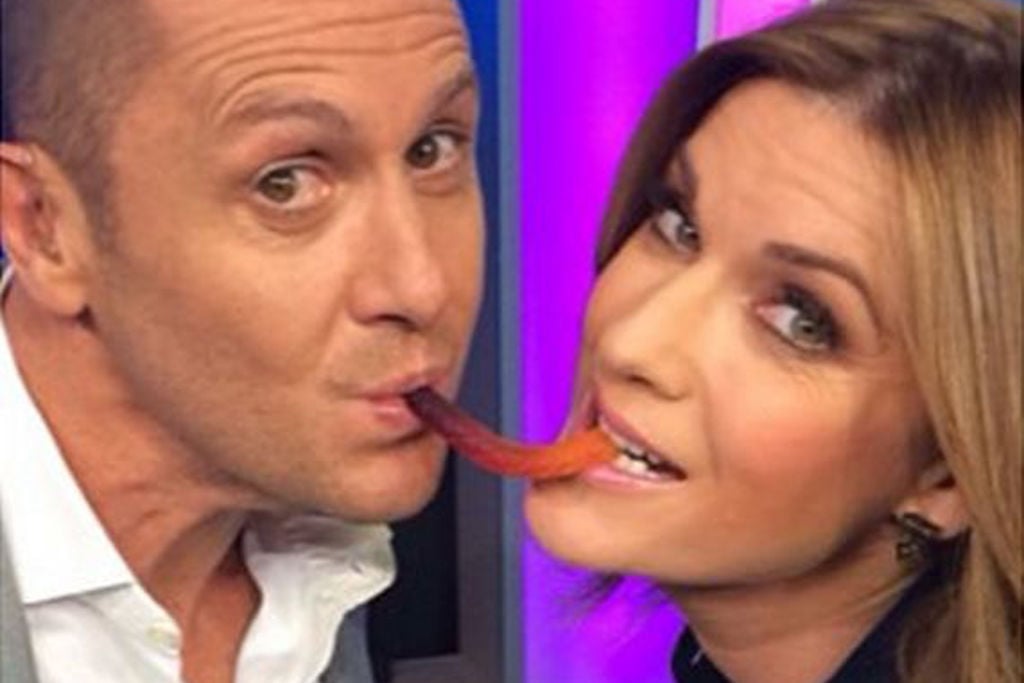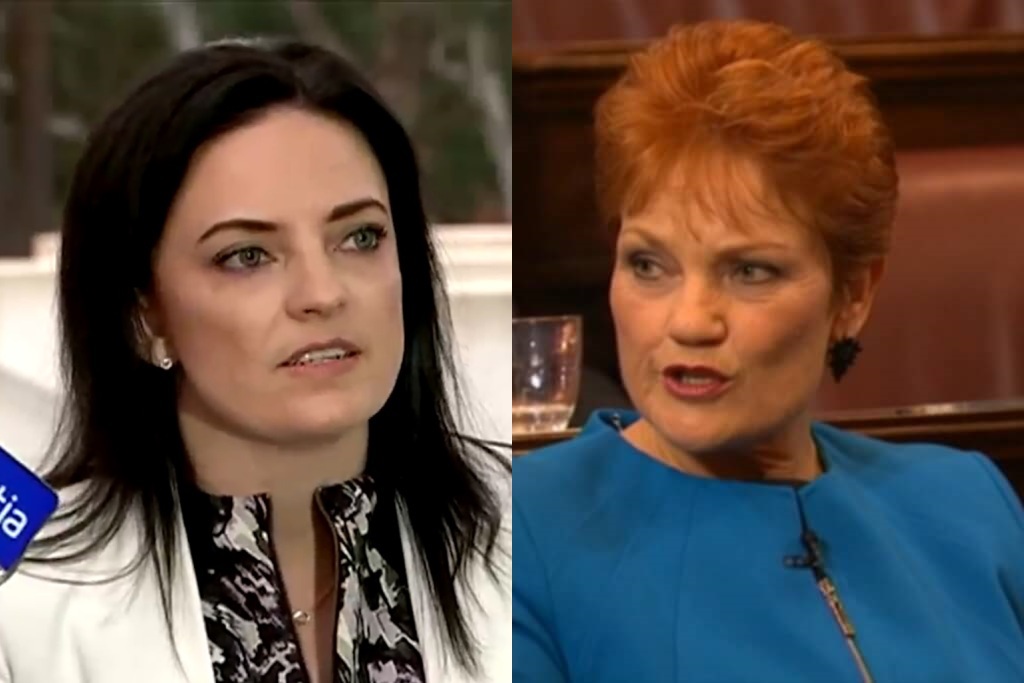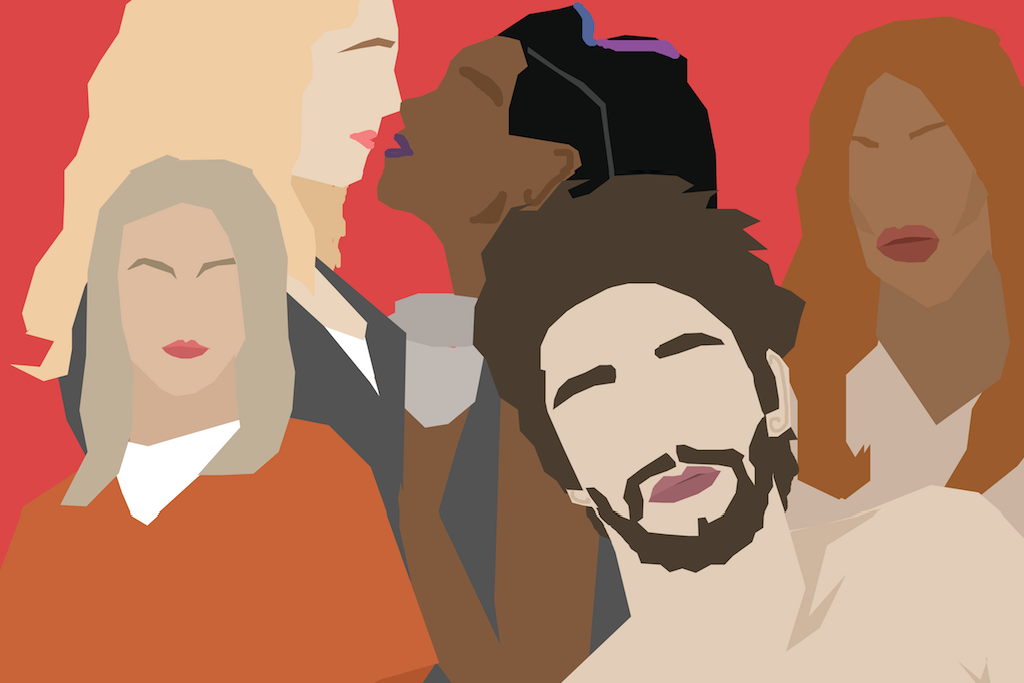‘Atypical’ Is The Most Relatable And Complex Depiction Of Autism I’ve Seen
Netflix's new series showed, finally, it's ok to be who I am.
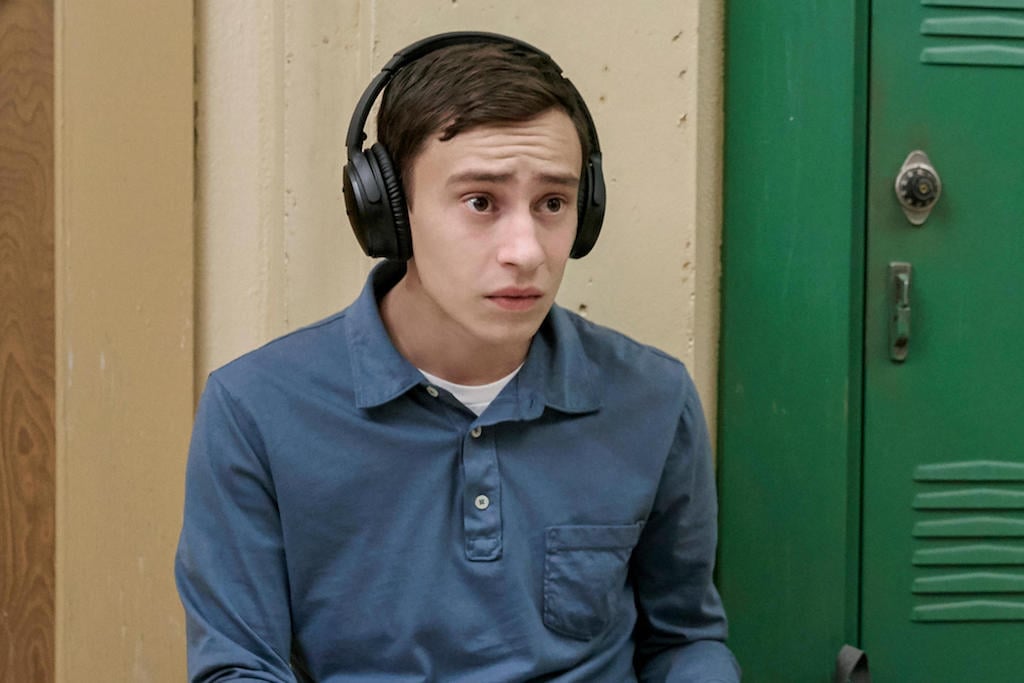
I’ve spent my whole life looking to TV and film characters in order to learn how to function in the world.
Cher from Clueless taught me you shouldn’t have a fringe, because then you can sweep your hair back in one sensual, swift movement. Angela from My So Called Life showed me how feeling lots of feelings and having lots of thoughts while wearing crushed velvet might be ok. Dorothy Shaw in Gentlemen Prefer Blondes reminded me that being smart and strong and not blonde could be a desirable thing. Buffy the Vampire Slayer taught me that it’s possible to have friends and fight your demons at the same time.
But watching Netflix’s new series Atypical was a whole new experience because, finally, it showed it was ok to be who I am.
Depictions of autism over the years have been limited. Rain Man (spoiler alert, even though you’ve had 29 years to watch it) ends up back at the institution. I love Sesame Street’s recent autistic addition, Julia, but she’s a Muppet. Literally. It’s long been theorised that Sheldon from The Big Bang Theory could be autistic, but he’s not ‘out’ about it. Being ‘out’ about autism is a whole different thing from it being insinuated.
While the series has faced criticism — particularly for its lack of representation behind-the-scenes — Atypical’s exploration of the condition felt more deep and complex than anything I’d seen before. The show creates a world where autism doesn’t stand alone as something to be overcome, or result in a quick bus trip back to the institution. Instead, it’s a part of life. No character (written by How I Met Your Mother’s Robia Rashid) is left untouched when it comes to the difficulties of navigating social interaction, expectations, feelings and needs.
“I Feel Lots Of Empathy… Maybe Even More Than Neurotypicals”
Sam — an 18 year old on the autism spectrum, played with earnestness and sensitivity by Keir Gilchrist — is an Antarctica- and penguin-loving kid doing what he can to survive high school, family and therapy. Actually ‘Antarctica- and penguin-loving’ is an understatement. Sam’s relationship with these thing is what enables him to make sense of his surroundings and the people he encounters.
Atypical’s biggest strength may be the way Sam’s Antartica-related thoughts frame each episode. “Twiddle, which is what I call my self-stimulatory behaviour, is when I flick a pencil against a rubber band at a certain frequency and think about all the things I can never do,” he says. “Like, research penguins in Antarctica or have a girlfriend. I don’t know. I’d like to go to Antarctica. It’s quiet there. Except in the rookeries where the penguins breed. Those aren’t quiet! No sir.”
“People think autistic people don’t have empathy, but that’s not true. Sometimes I can’t tell if someone’s upset but, once I know, I feel lots of empathy… maybe even more than neurotypicals.”
Atypical’s co-producer, Jennifer Jason Leigh, also offers a squirm-in-your-seat portrayal of Elsa, the martyr-mum. She spends a lot of time baking and railing against suggestions made by her son’s pastel-clad therapist, Julia (Amy Okuda).
Elsa protectively knocks back suggestions of Sam having more interaction with girls and is deeply troubled by the idea that he might be ready to choose his own clothes. She desperately clings to the version of her son as a non-verbal, tantrum-throwing “child with autism”. This is distinct from an “autistic child” because, as we learn through Elsa’s support group, it’s all about “people-first” terminology.
We are always 100 percent on Team Sam.
Sam’s soft, supportive and eternally guilty father Doug (depicted with tenderness by Michael Rapaport) also occasionally comes along to support his son. Elsa and Doug constantly compete for the role of Sam’s rock, with varying degrees of success. Between Doug’s penchant for abandonment and Elsa’s fondness for the local bartender, Atypical provides us with a healthy reminder that parents have absolutely no idea what they’re doing either.
Then, Sam’s too-cool-for-school sister, Casey (Brigette Lundy-Paine) rolls like a river through a confusing mix of praise and nasty one-liners, which mirror the perpetual misunderstandings and bullying Sam experiences at school.
Overall, it’s safe to say that we’re always 100 percent on Team Sam. Do it, Sam! Don’t listen to Casey! Say you love penguins on your online dating profile! Get the t-shirt with the eight whales swimming across it even if your friend from work says it’s ridiculous! And be honest, always, yes!
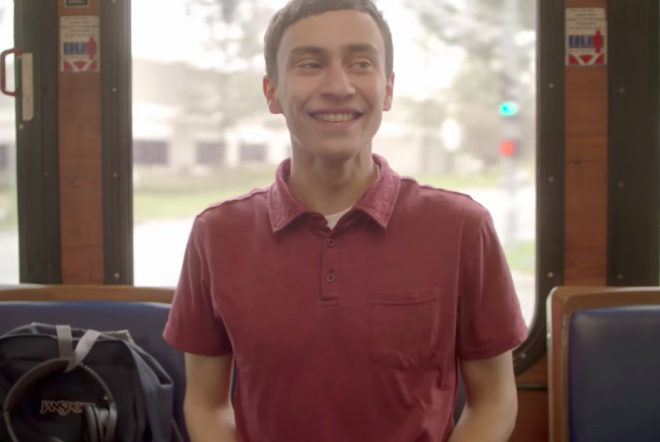
Empathy and Empowerment
Watching Sam walk up to his classmates, notebook and pencil in hand, genuinely wanting to research “how to steal a girl from her boyfriend” was one of the most relatable scenes I’ve ever seen on screen. It reveals how logic can be completely at odds with the reality of how people are expected to learn and communicate. “In science, observable evidence plays a key role in discovery but, to really understand it, you have to ask questions,” Sam explains.
What follows is one of the most accurate depictions of the blank and painful space that exists between language and feelings for those deep on the spectrum. “People think I don’t know when I’m being picked on, but I do,” Sam tells us. “I just don’t always know why… which, in some ways, is worse.”
The show takes autism beyond something that must be unlearned, or reconfigured.
Atypical shines the most in moments when we are invited to see Sam choosing not to say and do things because, somewhere along the line, he learned not to say or do them. These fascinating glimpses into his psychology are easy to miss, but they are by far the most progressive and illuminating aspects of the show. They build bridges between everyone who grapples with what to do or not do, say or not say, and those who do so on the autism spectrum.
Sam leads the pack with the most acute and complex example of a struggle with thoughts, feelings and communication. But in showing how this applies to everyone, the series makes a move toward empowerment and away from the perception of autism as a disability. It positions itself as a tool to foster greater understanding.
Atypical is a world where autism moves beyond something that must be unlearned, or reconfigured. Thanks to Sam, I feel good embracing my inner Antarctica- and penguin-loving little girl and seeing her value. I don’t feel like I have to constantly try to be like someone else.
–
Atypical is on Netflix now.
–
Madeleine Ryan is a writer and actor based in regional Victoria.
